ന്യൂദല്ഹി: കശ്മീര് വിഷയത്തില് മുന്പ്രധാനമന്ത്രി ജവഹര്ലാല് നെഹ്റുവിന് പറ്റിയ അഞ്ച് മണ്ടത്തരങ്ങളുടെ 75-ാം വാര്ഷികമാണ് ഒക്ടോബര് 27ന് കടന്നുപോയതെന്ന് കേന്ദ്രനിയമമന്ത്രി കിരണ് റിജിജു. നെഹ്റുവിന്റെ ഈ അഞ്ച് തീരുമാനങ്ങള് ഏഴ് പതിറ്റാണ്ടോളം ഇന്ത്യയെ വേട്ടയാടിയെന്നും കിരണ് റിജിജു അഭിപ്രായപ്പെടുന്നു. ജമ്മുകശ്മീര് ഇന്ത്യന് യൂണിയന്റെ ഭാഗമായതിന്റെ 75-ാം വാര്ഷികമായിരുന്നു ഒക്ടോബര് 27ന്. എന്നാല്, ഈ തീയതിക്ക് മുമ്പും ശേഷവും നെഹ്റു കൈക്കൊണ്ട ഏറ്റവും വലിയ മണ്ടത്തരങ്ങളുടെ 75-ാം വാര്ഷികമായും ഒക്ടോബര് 27നെ കണക്കാക്കാം.

1947ല് ഇന്ത്യ വിഭജിക്കപ്പെട്ടപ്പോള് വിഭജനം തത്വത്തില് ബ്രിട്ടീഷ് ഇന്ത്യയ്ക്ക് മാത്രമേ ബാധകമായിരുന്നുള്ളൂ. ഇന്ത്യ, പാക്കിസ്ഥാന് എന്നീ സ്വയംഭരണ പ്രദേശങ്ങളില് ഏതില് ചേരണം എന്ന് തീരുമാനിക്കാനുള്ള സ്വാതന്ത്ര്യം നാട്ടുരാജ്യങ്ങള്ക്ക് ഉണ്ടായിരുന്നു. ഈരാജ്യങ്ങളിലെ ജനങ്ങളുടെ അംഗീകാരം തേടേണ്ട കാര്യമില്ലായിരുന്നു. ഇന്ത്യന് യൂണിയനില് ചേരാന് ഭരണാധികാരി ഒരുക്കമാണോ എന്നത് മാത്രമായിരുന്നു പ്രധാനം. മറ്റു നാട്ടുരാജ്യങ്ങള് ചെയ്തത് ഇത് മാത്രമാണ്.
സര്ദാര് പട്ടേലിന്റെ നേതൃത്വത്തില് അന്ന് ഉണ്ടായിരുന്ന 560 ഓളം നാട്ടുരാജ്യങ്ങളെ 1947 ആഗസ്ത് 15ന് മുമ്പായി ഇന്ത്യയുമായി കൂട്ടിച്ചേര്ത്തു. ഹൈദരാബാദും ജുനഗഡും മാത്രമാണ് പ്രശ്നങ്ങള് സൃഷ്ടിച്ചത്. പ്രശ്നങ്ങള് സൃഷ്ടിച്ച നാട്ടുരാജ്യങ്ങളുടെ കൂട്ടത്തില് കശ്മീരും ഉണ്ടായിരുന്നെന്നും ഭരണാധികാരിയായിരുന്ന മഹാരാജാ ഹരി സിങ് ഇന്ത്യയില് ചേരുന്നതിനുള്ള തീരുമാനം വൈകിപ്പിക്കുകയായിരുന്നെന്നും ഉള്ള കള്ളം ഏഴ് പതിറ്റാണ്ടായി പ്രചരിക്കുന്നുണ്ട്. എന്നാല്, തന്റെ വ്യക്തിപരമായ അജണ്ടകള് പൂര്ത്തീകരിക്കുന്നതിനായി, ഈ പ്രശ്നങ്ങള് സൃഷ്ടിച്ചത് നെഹ്റു ആയിരുന്നെന്നും മഹാരാജ അല്ലായിരുന്നെന്നും ഇപ്പോള് പുറത്തുവരുന്ന ചരിത്രരേഖകളിലൂടെ വ്യക്തമാക്കുന്നു.
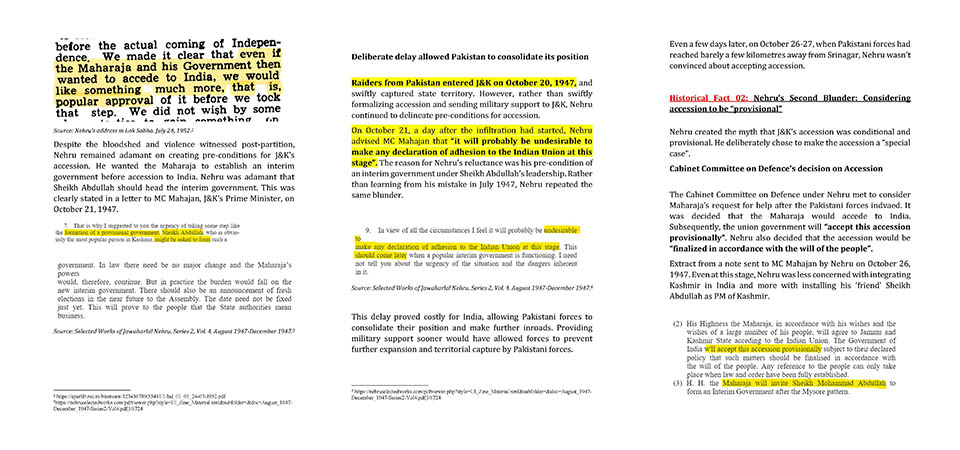
1952 ജൂലൈ 24ന് ലോകസഭയില് നെഹ്റു നടത്തിയ പ്രസംഗത്തില് നിന്ന് ഈ കാര്യങ്ങള് വ്യക്തമാകും.” ഇന്ത്യയില് ചേരാന് ആഗ്രഹിച്ച മറ്റെല്ലാ നാട്ടുരാജ്യങ്ങളെയും പോലെ മഹാരാജാ ഹരിസിങും 1947 ജൂലൈയില് തന്നെ ഇന്ത്യയില് ചേരുന്നതിനായി ഇന്ത്യന് നേതൃത്വത്തെ സമീപിച്ചിരുന്നു. ഇന്ത്യ സ്വാതന്ത്ര്യം നേടുന്നതിന് ഒരു മാസം മുമ്പായിരുന്നു അത്. നാഷണല് കോണ്ഫറന്സ് പോലെ, അവിടെയുള്ള സംഘടനകളുമായും അവയുടെ നേതാക്കന്മാരുമായും ഞങ്ങള്ക്ക് ബന്ധമുണ്ടായിരുന്നു. ഞങ്ങള്ക്ക് മഹാരാജാവിന്റെ ഭരണകൂടവുമായി ബന്ധമുണ്ടായിരുന്നു എന്നും നെഹ്റു പറഞ്ഞിരുന്നു. കശ്മീരിലേത് ഒരു പ്രത്യേക സാഹചര്യമാണെന്നും അവിടുത്തെ കാര്യങ്ങള് വേഗത്തില് ചെയ്യാന് ശ്രമിക്കുന്നത് ശരിയാകണമെന്നോ കൃത്യമാകണമെന്നോ ഇല്ല എന്നുമുള്ള ഉപദേശമാണ് രണ്ടു കൂട്ടര്ക്കും ഞങ്ങള് നല്കിയതെന്നും അതേ പ്രസംഗത്തില് നെഹ്റു പറയുന്നു. അന്ന് മഹാരാജാവിനും അദ്ദേഹത്തിന്റെ സര്ക്കാരിനും ഇന്ത്യയില് ചേരാന് താല്പ്പര്യമുണ്ടായിരുന്നെങ്കിലും, ഞങ്ങള് അതില് കൂടുതല് ആഗ്രഹിച്ചിരുന്നു. ജനങ്ങളുടെ അംഗീകാരം ആയിരുന്നു” അതെന്നും പ്രസംഗത്തിലുണ്ട്.
വിഭജനസമയത്ത്, നിബന്ധനകളൊന്നും ഇല്ലാതെ ഇന്ത്യയുടെ മറ്റു ഭാഗങ്ങളുമായി ചേരാനായിരുന്നു കശ്മീരിലെ ഭരണാധികാരി ആഗ്രഹിച്ചത്. ഇതിനെ എതിര്ത്ത വ്യക്തി നെഹ്റുവാണ്. കശ്മീരിലേത് പ്രത്യേക സാഹചര്യം ആയിരുന്നതിനാല് ജനങ്ങളുടെ അംഗീകാരം വേണമെന്ന ഇല്ലാക്കഥ മെനഞ്ഞത് നെഹ്റുവാണ്. നെഹ്റുവിന്റെ മണ്ടത്തരങ്ങള് 1947ലെ അദ്ദേഹത്തിന്റെ വഞ്ചനയില് മാത്രം ഒതുങ്ങുന്നില്ല. വിഭജനത്തിന് ശേഷം ചോരപ്പുഴകളും അക്രമങ്ങളും അരങ്ങേറിയിട്ടും, കശ്മീര് ഇന്ത്യയില് ചേരുന്നതിനു മുമ്പ് തന്റെ വ്യക്തിപരമായ അജണ്ട നടപ്പാകണം എന്ന കാര്യത്തില് നെഹ്റു കടുംപിടിത്തം തുടര്ന്നു.
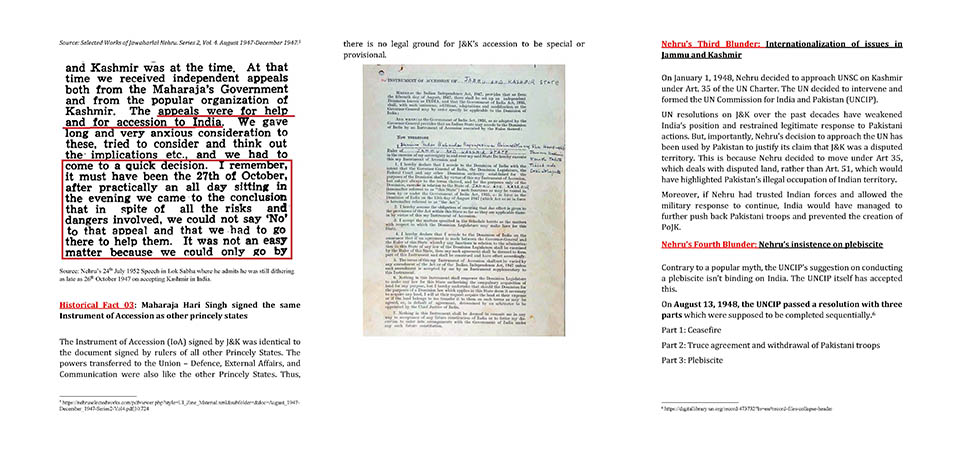
1947 ഒക്ടോബര് 20ന് പാക് സൈന്യം കശ്മീര് ആക്രമിച്ചു. കശ്മീരിനെ ഇന്ത്യന് യൂണിയനില് ചേര്ക്കാന് മഹാരാജ ഹരി സിങ് വീണ്ടും നെഹ്റുവിനോട് അപേക്ഷിച്ചു. എന്നാല് നെഹ്റു അതിന് തയ്യാറായില്ല. ഈ ഘട്ടത്തില് ഇന്ത്യന് യൂണിയനോട് ചേര്ന്നുനില്ക്കുന്ന ഏതെങ്കിലും പ്രഖ്യാപനം നടത്തുന്നത് അഭികാമ്യമല്ലെന്നാണ് 1947 ഒക്ടോബര് 21ന്, പാകിസ്ഥാന് അധിനിവേശം ആരംഭിച്ച് ഒരു ദിവസം കഴിഞ്ഞ്, നെഹ്റു ജമ്മു കശ്മീര് പ്രധാനമന്ത്രി എം.സി. മഹാജനയച്ച കത്തില് പറയുന്നത്. ഒരു താല്ക്കാലിക സര്ക്കാര് രൂപീകരിക്കുന്നത് പോലുള്ള ചില നടപടികള് കൈക്കൊള്ളേണ്ടതിന്റെ ആവശ്യകത ഞാന് നിങ്ങളോട് നിര്ദ്ദേശിക്കുകയാണ്. കശ്മീരിലെ ഏറ്റവും ജനപ്രീതിയുള്ള വ്യക്തിയായ ഷെയ്ഖ് അബ്ദുള്ളയോട് സര്ക്കാര് രൂപീകരിക്കാന് ആവശ്യപ്പെട്ടേക്കാമെന്നും നെഹ്റു ആ കത്തില് പറഞ്ഞിരുന്നു. കശ്മീരിനെ ഇന്ത്യയോട് കൂട്ടിച്ചേര്ക്കുന്നതിനേക്കാള് തന്റെ സുഹൃത്തായ ഷെയ്ഖ് അബ്ദുള്ളയെ അധികാരത്തില് പ്രതിഷ്ഠിക്കുന്നതിനായിരുന്നു നെഹ്റു മുന്ഗണന നല്കിയത്. 1947 ജൂലൈയില് മഹാരാജ ഹരി സിങ് ഇന്ത്യയില് ചേരാന് നെഹ്റുവിനെ സമീപിച്ചപ്പോഴും നെഹ്റു ഉന്നയിച്ചത് അതേ ആവശ്യം തന്നെയാണ്. നെഹ്റു തന്റെ വ്യക്തിപരമായ അജണ്ട ഉപേക്ഷിച്ച് രാജ്യതാത്പര്യത്തെക്കുറിച്ചു മാത്രം ചിന്തിച്ചിരുന്നെങ്കില് ആ കരാര് അന്നുതന്നെ നടപ്പില് വരുമായിരുന്നു. ആ അധ്യായം എന്നെന്നേക്കുമായി അവസാനിപ്പിക്കാമായിരുന്നു.
1947 ഒക്ടോബര് 26ന് പാക് സൈന്യം ശ്രീനഗറിലെത്തി. ഒടുവില്, 1947 ഒക്ടോബര് 27ന് ഇന്ത്യയില് ചേരാനുള്ള മഹാരാജ ഹരി സിങിന്റെ അപേക്ഷ നെഹ്റു അംഗീകരിച്ചു. അതിനുശേഷം ഇന്ത്യന് സൈന്യം കശ്മീരില് പാക് സൈന്യത്തോട് ഏറ്റുമുട്ടാനിറങ്ങി. എന്നാല് ഈ വിഷയം 1947 ജൂലൈയില് തന്നെ അവസാനിപ്പിക്കാമായിരുന്നു. അങ്ങനെ ചെയ്താല് കാശ്മീരിന്റെ ചരിത്രം തന്നെ മറ്റൊന്നാകുമായിരുന്നു. കശ്മീരില് പാകിസ്ഥാന് അധിനിവേശം ഉണ്ടാകുമായിരുന്നില്ല. പാക് അധിനിവേശ കശ്മീരിനെക്കുറിച്ച് ഐക്യരാഷ്ട്രസഭയില് പരാമര്ശമുണ്ടാകുമായിരുന്നില്ല. പിന്നീടുള്ള വര്ഷങ്ങളില് ഭീകരത ശക്തി പ്രാപിക്കുമായിരുന്നില്ല. 1990ല് കശ്മീരി പണ്ഡിറ്റുകളെ വേരോടെ പിഴുതെറിയുമായിരുന്നില്ല.
എന്നാല് 1947 ഒക്ടോബര് കൊണ്ടും നെഹ്റുവിന്റെ തെറ്റുകള് അവസാനിച്ചില്ല. കശ്മീരിനെ ഇന്ത്യയോട് ചേര്ത്തത് താത്ക്കാലികമാണെന്ന പ്രഖ്യാപനമായിരുന്നു കശ്മീരില് നെഹ്റു ചെയ്ത രണ്ടാമത്തെ മണ്ടത്തരം. കശ്മീര് ഒഴികെയുള്ള മറ്റെല്ലാ നാട്ടുരാജ്യങ്ങളും എന്നെന്നേക്കുമായി ഇന്ത്യന് യൂണിയനില് ലയിച്ചിരുന്നു. നെഹ്റുവിന്റെ ഈ പ്രഖ്യാപനത്തോടെയാണ് പല പ്രശ്നങ്ങളും ആരംഭിച്ചത്. 1948 ജനുവരി ഒന്നിന്, തര്ക്കത്തിലുള്ള പ്രദേശങ്ങളുമായി ബന്ധപ്പെട്ട ആര്ട്ടിക്കിള് 35 ചൂണ്ടിക്കാണിച്ചുകൊണ്ട് ഐക്യരാഷ്ട്രസഭയെ സമീപിക്കാനുള്ള തീരുമാനമാണ് നെഹ്റുവിന്റെ മൂന്നാമത്തെ മണ്ടത്തരം. ഇതിന് പകരം, പാക്കിസ്ഥാന് ഇന്ത്യന് പ്രദേശങ്ങള് നിയമവിരുദ്ധമായി കൈയ്യടക്കിയിരിക്കുകയാണ് എന്ന് എടുത്തുകാണിക്കാന് കഴിയുന്ന, ആര്ട്ടിക്കിള് 15 പ്രകാരം ഐക്യരാഷ്ട്രസഭയെ സമീപിക്കണമായിരുന്നു. അന്ന് മുതല്, യുഎന് പ്രമേയങ്ങള് ഇന്ത്യയെ വേട്ടയാടിക്കൊണ്ടിരിക്കുന്നു.
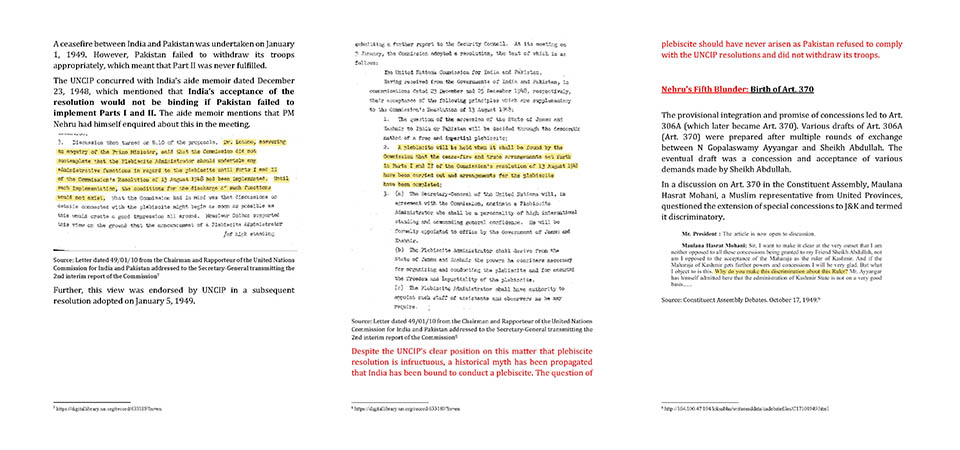
കാശ്മീരില് യുഎന്നിന്റെ നേതൃത്വത്തില് നടത്തിയ നിര്ബന്ധിത ഹിതപരിശോധന ഇന്ത്യ തടയുന്നു എന്ന മിഥ്യാധാരണ പരത്താന് അനുവദിച്ചതാണ് കാശ്മീരിലെ നാലാമത്തെ നെഹ്റൂവിയന് മണ്ടത്തരം. ആര്ട്ടിക്കിള് 370 കൊണ്ട് വരികയും നടപ്പാക്കുകയും ചെയ്തു എന്നതാണ് നെഹ്റുവിന്റെ അഞ്ചാമത്തെ മണ്ടത്തരം. ഭരണഘടനയുടെ ഇടക്കാല കരട് രേഖയിലെ ആര്ട്ടിക്കിള് 306 എ എന്നാണ് ഇത് രേഖപ്പെടുത്തിയിരിക്കുന്നത്. മറ്റെല്ലാ നാട്ടുരാജ്യങ്ങളെയും പോലെ ഇന്ത്യന് യൂണിയനില് ചേരാന് തീരുമാനിച്ചതിനാല് ഇത്തരമൊരു ആര്ട്ടിക്കിളിന്റെ ആവശ്യം തന്നെ ഉണ്ടായിരുന്നില്ല. നെഹ്റുവിന്റെ മനസ്സില് മാത്രമാണ് ഇങ്ങനെ ഒരു ആശയമുണ്ടായത്. ആര്ട്ടിക്കിള് 370 നിലവില് വന്നതോടെയാണ് വിഘടനവാദികള് ഇന്ത്യയുടെ കഴുത്തില് കുരുക്കിടുന്ന പോലെ ഭീഷണി മുഴക്കാന് തുടങ്ങിയത്.
ഏഴ് പതിറ്റാണ്ടുകള് പിന്നീട് കടന്ന് പോയി. ദേശീയ താല്പ്പര്യത്തിന് മുകളില് കുടുംബം, സൗഹൃദം, വ്യക്തിപരമായ അജണ്ടകള് എന്നിവയ്ക്ക് നെഹ്റു കൂടുതല് പ്രാധാന്യം നല്കിയപ്പോള് അതിന് രാജ്യം വലിയ വിലയാണ് നല്കേണ്ടി വന്നത്. ഇന്ത്യയെ ആക്രമിക്കാന് ലോകത്തിന് ഒരു പഴുത് ലഭിച്ചു. തങ്ങളുടെ അധിനിവേശ പ്രദേശത്തിന്റെ ഒരു ഭാഗം പാകിസ്ഥാന് ചൈനക്ക് കൈമാറി. 1980കളിലാണ് ഈ മേഖലയില് ജിഹാദി ഭീകരത ആരംഭിച്ചത്.
കശ്മീരി പണ്ഡിറ്റുകളെ അവരുടെ ജന്മനാട്ടില് നിന്ന് പുറത്താക്കി. സ്വന്തം രാജ്യത്ത് അവരെ അഭയാര്ത്ഥികളാക്കി മാറ്റി. ആയിരക്കണക്കിന് ഇന്ത്യന് പൗരന്മാര്ക്ക് തീവ്രവാദം കാരണം ജീവന് നഷ്ടമായി. നിരവധി സൈനികര്ക്ക് സ്വന്തം ജീവന് ബലി നല്കേണ്ടി വന്നു. ഇതെല്ലാം മറ്റൊരു തരത്തില് ആക്കാമായിരുന്നു. ഒരാള്ക്ക് പറ്റിയ അബദ്ധം കാരണം ഏഴ് പതിറ്റാണ്ട് കാലം നിരവധി തലമുറകള് അനുഭവിക്കേണ്ടി വന്നു.
2019 ആഗസ്ത് അഞ്ചിന് ചരിത്രം മറ്റൊരു വഴിത്തിരിവിനെ അഭിമുഖീകരിച്ചു. 1947 മുതല് ഇന്ത്യയെ അലട്ടിക്കൊണ്ടിരുന്ന തെറ്റുകളുടെ പരമ്പര പ്രധാനമന്ത്രി നരേന്ദ്രമോദി അവസാനിപ്പിച്ചു. പ്രത്യേക കേന്ദ്രഭരണ പ്രദേശം പ്രഖ്യാപിച്ച് ജനതയ്ക്ക് നീതി നല്കി. ഏറെക്കാലമായി അനുഭവിച്ച ദുരിതങ്ങള്ക്ക് ഇതോടെ അറുതിയായിരിക്കുകയാണെന്നും കിരണ് റിജിജു അഭിപ്രായപ്പെടുന്നു.
Brief History of Nehru’s Blunders on Kashmir:
27th October, 1947 marks the 75th anniversary of the Nehru’s grievous mistakes in integrating Kashmir in India, an error for which India and Indians paid in blood for 75 years.
• July 1947:
Maharaja Hari Singh approaches Congress to accede to India like other princely states. Nehru refuses, saying “he wants more”, a requirement which did not exist in any instrument.
• 20th October 1947:
o Pakistani raiders invaded Kashmir region
o Nehru still waffles and does not accept Kashmir’s request to accede to India.
• 21st October: Nehru officially writes to PM of Maharaja Hari Singh, saying it is not desirable for Kashmir to accede to India at that time. This despite Pakistani forces rapidly advancing in Kashmir.
• 26th October:
o Pakistani forces surround Srinagar
o Maharaja Hark Singh again makes desperate appeal to join India
o Nehru still negotiating and waffling with inordinate delay in responding
• 27th October: Kashmir finally accepted into Indian union when Nehru’s demand met on Sheikh Abdullah
Details and Chronology
In 1947, Nehru decided to handle the integration of Jammu and Kashmir rather than leaving the matter to Sardar Patel, who managed the integration of all other Princely States. However, five historical blunders by Nehru during the crucial period – 1947 – 1949 not only prevented full integration of J&K but also created a foreground for security threats and anti-India activities that have plagued the region for many decades.
Nehru’s First Blunder: Nehru delayed and almost derailed J&K’s Accession:
For 75 years, a historical lie has been propagated that Maharaja Hari Singh dithered on accession to India. However, Nehru’s speeches and letters indicate that his dismal handling of affairs delayed and nearly derailed J&K’s accession.
Historical Fact 01: Maharaja Hari Singh was willing to accede in July 1947, but Nehru dithered
In an address in the Lok Sabha on July 24, 1992, Nehru mentioned that Maharaja Hari Singh had approached India in July 1947 itself. However, rather than formalizing the accession, Nehru considered Kashmir a “special case” and sought “something much more”. Nehru deliberately made Kashmir a unique case where the ruler was willing to accede, but the union government hesitated to finalize the accession.
Nehru created “pre-conditions” for accession
Though Maharaja Hari Singh’s acceptance would have been adequate for accession as per the India Independence Atct, Nehru wanted to seek “popular approval”. He consciously made Kashmir an exception and decided to negotiate simultaneously with Sheikh Abdullah. Nehru falsely believed that Abdullah represented the dominant popular voice of the state. Nehru wanted “popular approval” before proceeding with the accession in July 1947.
Despite the bloodshed and violence witnessed post-partition, Nehru remained adamant on creating pre-conditions for J&K’s accession. He wanted the Maharaja to establish an interim government before accession to India. Nehru was adamant that Sheikh Abdullah should head the interim government. This was clearly stated in a letter to MC Mahajan, J&K’s Prime Minister, on October 21, 1947.
Deliberate delay allowed Pakistan to consolidate its position
Raiders from Pakistan entered J&K on October 20, 1947, and swiftly captured state territory. However, rather than swiftly formalizing accession and sending military support to J&K, Nehru continued to delineate pre-conditions for accession. On October 21, a day after the infiltration had started, Nehru advised MC Mahajan that “it will probably be undesirable to make any declaration of adhesion to the Indian Union at this stage”. The reason for Nehru’s reluctance was his pre-condition of an interim government under Sheikh Abdullah’s leadership. Rather than learning from his mistake in July 1947, Nehru repeated the same blunder.
This delay proved costly for India, allowing Pakistani forces to consolidate their position and make further inroads. Providing military support sooner would have allowed forces to prevent further expansion and territorial capture by Pakistani forces
Even a few days later, on October 26-27, when Pakistani forces had reached barely a few kilometres away from Srinagar, Nehru wasn’t convinced about accepting accession.
Historical Fact 02: Nehru’s Second Blunder: Considering accession to be “provisional”
Nehru created the myth that J&K’s accession was conditional and provisional. He deliberately chose to make the accession a “special case”.
Cabinet Committee on Defence’s decision on Accession
The Cabinet Committee on Defence under Nehru met to consider Maharaja’s request for help after the Pakistani forces indvaed. It was decided that the Maharaja would accede to India. Subsequently, the union government will “accept this accession provisionally”. Nehru also decided that the accession would be “finalized in accordance with the will of the people”.
Extract from a note sent to MC Mahajan by Nehru on October 26, 1947. Even at this stage, Nehru was less concerned with integrating Kashmir in India and more with installing his ‘friend’ Sheikh
Historical Fact 03: Maharaja Hari Singh signed the same Instrument of Accession as other princely states
The Instrument of Accession (IoA) signed by J&K was identical to the document signed by rulers of all other Princely States. The powers transferred to the Union – Defence, External Affairs, and Communication were also like the other Princely States. Thus
there is no legal ground for J&K’s accession to be special or provisional.
Nehru’s Third Blunder: Internationalization of issues in Jammu and Kashmir
On January 1, 1948, Nehru decided to approach UNSC on Kashmir under Art. 35 of the UN Charter. The UN decided to intervene and formed the UN Commission for India and Pakistan (UNCIP).
UN resolutions on J&K over the past decades have weakened India’s position and restrained legitimate response to Pakistani actions. But, importantly, Nehru’s decision to approach the UN has been used by Pakistan to justify its claim that J&K was a disputed territory. This is because Nehru decided to move under Art 35, which deals with disputed land, rather than Art. 51, which would have highlighted Pakistan’s illegal occupation of Indian territory.
Moreover, if Nehru had trusted Indian forces and allowed the military response to continue, India would have managed to further push back Pakistani troops and prevented the creation of PoJK.
Nehru’s Fourth Blunder: Nehru’s insistence on plebiscite
Contrary to a popular myth, the UNCIP’s suggestion on conducting a plebiscite isn’t binding on India. The UNCIP itself has accepted this.
On August 13, 1948, the UNCIP passed a resolution with three parts which were supposed to be completed sequentially
A ceasefire between India and Pakistan was undertaken on January 1, 1949. However, Pakistan failed to withdraw its troops appropriately, which meant that Part II was never fulfilled.
The UNCIP concurred with India’s aide memoir dated December 23, 1948, which mentioned that India’s acceptance of the resolution would not be binding if Pakistan failed to implement Parts I and II. The aide memoir mentions that PM Nehru had himself enquired about this in the meeting.
Further, this view was endorsed by UNCIP in a subsequent resolution adopted on January 5, 1949
Despite the UNCIP’s clear position on this matter that plebiscite resolution is infructuous, a historical myth has been propagated that India has been bound to conduct a plebiscite. The question of plebiscite should have never arisen as Pakistan refused to comply with the UNCIP resolutions and did not withdraw its troops.
Nehru’s Fifth Blunder: Birth of Art. 370
The provisional integration and promise of concessions led to Art. 306A (which later became Art. 370). Various drafts of Art. 306A (Art. 370) were prepared after multiple rounds of exchange between N Gopalaswamy Ayyangar and Sheikh Abdullah. The eventual draft was a concession and acceptance of various demands made by Sheikh Abdullah.
In a discussion on Art. 370 in the Constituent Assembly, Maulana Hasrat Mohani, a Muslim representative from United Provinces, questioned the extension of special concessions to J&K and termed it discriminatory.

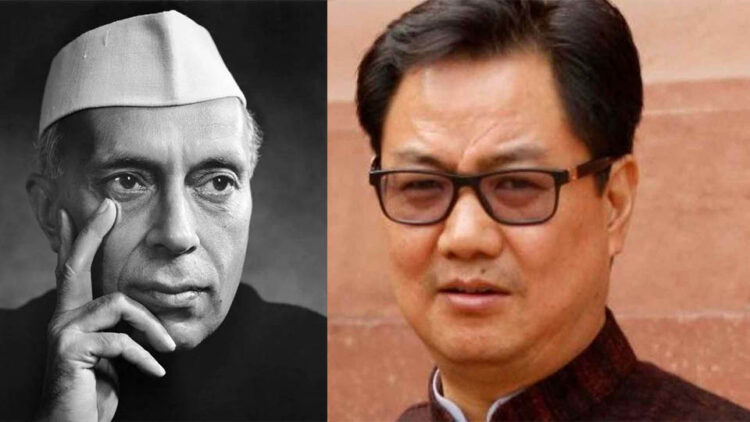


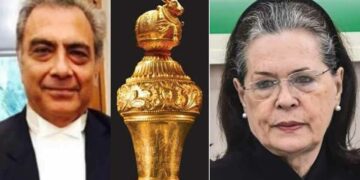
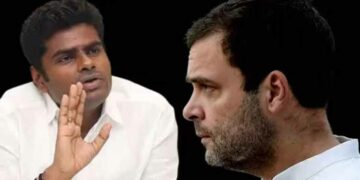












പ്രതികരിക്കാൻ ഇവിടെ എഴുതുക: